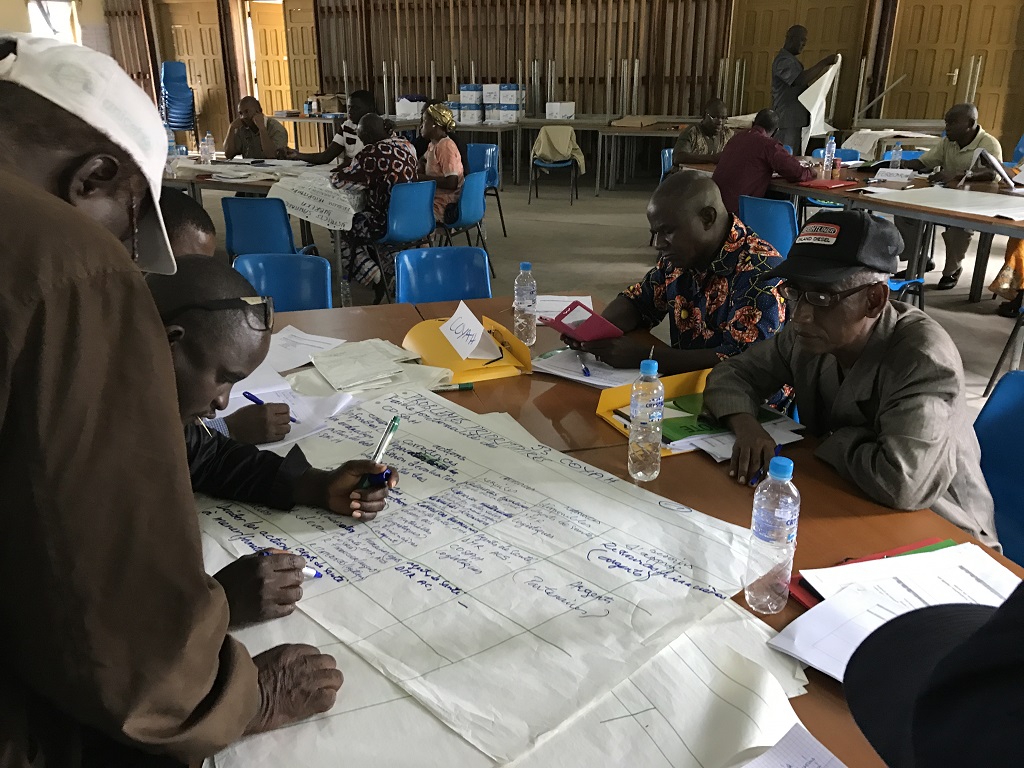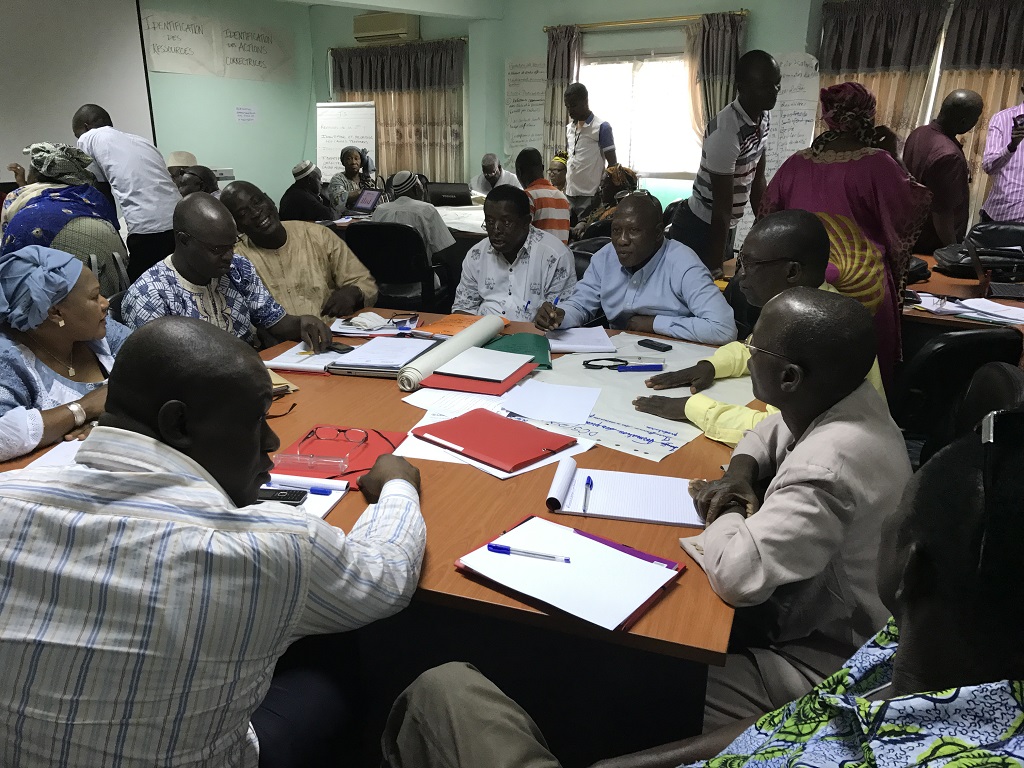When Ebola ripped through the West African nation of Guinea in 2014, it exposed weak governance, transparency, and accountability at all levels – and left a further damaged health system in its wake. In response, MCSP has been strengthening the country’s health systems with a focus on the district level, where health teams are increasingly responsible for the management of services and resources. When local health systems challenges arise, district teams are learning to respond strategically.
These efforts began with a Rapid Health System Assessment (RHSA) in four MCSP-supported regions that experienced the highest Ebola burden: Conakry, Kindia, Boké, and N’Zérékoré. MCSP supported the Ministry of Health (MoH) to rapidly diagnose health system barriers as well as best practices at the sub-national level to provide local decision makers with the evidence they need to strengthen their health systems.
Then, in collaboration with the MoH, MCSP staff rolled out the Program’s Comprehensive Approach to Health Systems Management in the four districts. First piloted in Tanzania, the MCSP-developed approach aims to support district teams in developing and implementing integrated work plans that address health systems challenges by taking advantage of local assets and holistic thinking.
MCSP and the MoH facilitated four three-day regional workshops focused on building district teams’ capacity to implement the comprehensive approach. Workshop facilitators guided participants through a series of interactive activities aimed at developing a shared understanding of the health systems building blocks, and increasing their understanding of the roles and responsibilities of district health managers. Activities also helped attendees identify district health system priority problems and develop lists of local resources. Corrective actions and plans to solve specific problems could then be developed using the local resources.

District teams were encouraged to take ownership of their problems by first understanding root causes, then identifying local resources that can be used or advocated for to mitigate the problem. And this ideas seems to have taken root. As one participant said at workshop end: “We will use these recommendations to advocate to the local government [for support implementing our activities].”
The approach encourages district teams to recognize the importance of all actors in the local health system, and to value them as assets that can be leveraged for supporting improvements. Therefore, participants included more than just the district health teams, but also community and health facility representatives (including community health workers), staff from local government, and local development partners. All worked together through the workshop activities.
Many left feeling empowered to address challenges themselves, using local solutions instead of relying on the national level. “We will leave here with this great innovation [the Comprehensive Approach] and will have thought through many solutions,” said a district health team participant.
To sustain and institutionalize this approach, MCSP staff provided district health managers with syntheses of the work done during the workshop, and are helping them to incorporate these results into their local planning activities.
The RHSA and Comprehensive Approach implementation in Guinea had an important secondary benefit, as well: that of building national-level ministry capacity. MCSP intentionally collaborated with the MoH in this work to strengthen their ability to implement and train others in the approach. As a result, the MoH is now championing the approach, expressing interest in scaling it up across Guinea’s four additional regions and integrating it into their annual work planning process. Several external partners have also expressed readiness to support activities identified during the workshops.
But what does this all mean on the ground? It means something very substantial: district health teams are now implementing sustainable solutions to health system challenges tailored to their local context. MCSP continues to support these efforts through mentoring visits to district teams and regional trainings in leadership, stakeholder coordination, and resource management, while also assisting the MoH to institutionalize and scale-up the approach nationally.
And what this really means is better access to high-quality reproductive, maternal, newborn, and child health services for more Guineans.

